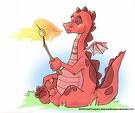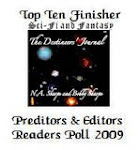


Some say that the origins of magic date back thousands of years, to the days when the goddess was worshiped and humanity had great reverence for the powers of nature and for women as creators of new life. In the "New Age" philosophy, this relates to the concept of "Gaia," or "Mother Earth," which views planet earth as essentially a living being.
Prior to the 14th century, magic came to mean a collection of beliefs and practices including healing through spells, mixing ointments or concoctions, dabbling in the supernatural, divining or forecasting the future, and engaging in clairvoyance.
After North America was discovered and Europeans began migrating to the new land, magic came into practice by some of the early, colonial settlers. Since it had previously been branded as "demon-worship," magic was forbidden throughout the North American colonies. Despite this decree by the powers of the day, some colonists secretly practiced magic knowing they would be hanged or burned if caught. It has been said that certain rituals performed by early-American witches helped shield their settlements from attacks by Native Americans.
Magic can effect many outcomes, some good and some evil, depending on the type of magic and the intentions of the practitioner. The more well-known types of magic are denoted by colors.
"Black magic" is performed with the intention of harming another being, either as a means of building the practitioner's power or as the goal itself. The underlying ideology upon which black magic is based states that the practitioner and his or her pursuit of knowledge and/or physical well-being, are more important than other concerns, theological or ethical. "Green magic" involves the practitioner's attuning himself or herself to nature and the world around him or her. "White magic" is where the practitioner attunes himself or herself to the needs of human society and attempts to meet those needs. This is a form of "personal betterment" magic, and does not entail harming other beings.
"Grey magic" is magic that is neither green, nor black, nor white, and which usually replaces the absolute stand of these realms with an ethical code that is particular to the practitioner. It is a type of magic all its own, and may be used for many different purposes. "Folk magic" is an eclectic collection of herbalism, faith healing, curses and hexes, candle magic, and other workings that has thrived in rural areas for centuries. There is also the term, "hedge wizard," which refers to an individual who attempts to practice magic with little or no formal training.
Like this post? Tweet it! Go ahead, you know you want to!
Spreading Christmas Joy
4 days ago


























3 comments:
I had no idea that there were so many different kinds of magic! Grey magic sounds like fun....sort of an all-purpose one.
Elizabeth
Mystery Writing is Murder
Good Morning Elizabeth!
Magic is so much fun and filled with so much potential - there are so many different kinds and different "cultures" within the magical groups.
Nancy, from Realms of Thought…
Hey loved learning about all the different "colors" of magic. Very interesting. Also love those sparkly images you use on your blog - pretty cool!
The Old Silly
Post a Comment